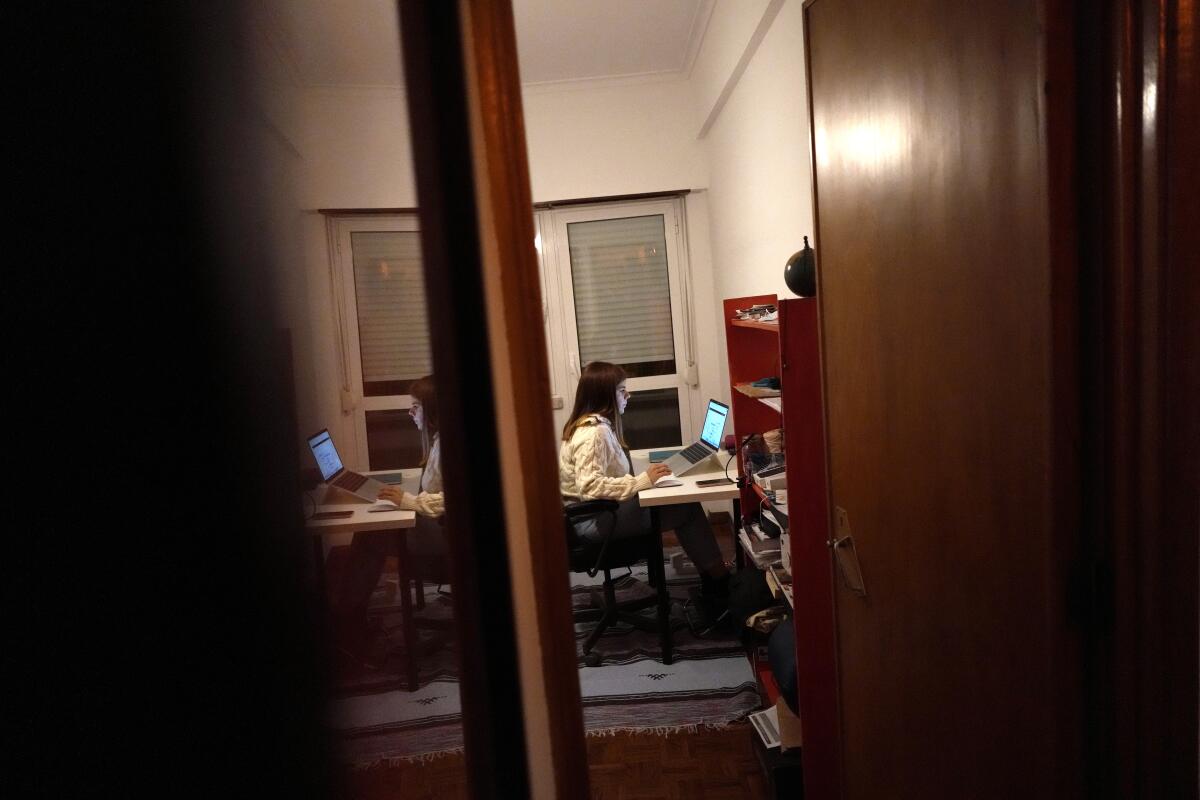What the work-from-home era has done to office politics

The gossip. The suck-up. The bully.
Workplaces have been home to these toxic personalities since the beginning of work, and a new survey has found the problem persists in the hybrid world in which employees can be in-person or virtual. About half the 800 U.S. workers surveyed say the negative effects of office politics have stayed the same in the COVID era, while 25% say they expect the disruptive behavior to get worse before it gets better.
“Work is different today, so office politics is emerging in different ways,” said Dana Sumpter, an associate professor of organization theory and management at Pepperdine University’s Graziadio Business School, who co-authored the research. “When you’re working remotely, it’s more difficult to get quality time with managers. So people might resort to sucking up to get that attention.”
More than one-third of the surveyed workers said rumor spreading and excessive flattery toward bosses were the most common upsetting behaviors they witnessed, followed by blame-gaming, backstabbing and credit snatching. Rounding out the list were bullying and sabotaging. Half of those polled said they felt pressured to engage in such behaviors, and 1 in 4 have quit a job over it.
While it’s not entirely clear how the shift to more hybrid workplaces will affect the prevalence and effects of office politics for the long term, it’s obvious that one doesn’t need to be in an office to engage in office politics.
A return to in-person work might seem like a good thing. But some red-state leaders worry the return-to-work economy will limit their talent pool.
Office suck-ups, popularized by television characters like Dwight Schrute in “The Office” and Tom Wambsgans in “Succession,” typically take their cues from those in charge. And in a virtual setting, they may be even more inclined to engage in the behavior to make sure they’re getting noticed by bosses, according to Sumpter.
“When one person does it and gets rewarded, others see that’s what they have to do to get ahead,” Sumpter said. “It’s contagious, and organizations suffer.”
Some employees won’t put up with it. Two in five workers said office politics caused them to consider leaving their organization, and 25% actually left because of it — with women more likely than men to have quit. That’s because women and under-represented groups benefit less from office politics, as they typically have less authority. “This is about power,” Sumpter said. “You are more subject to these games if you have less power.”
But not everyone sees office politics as inherently bad, the survey found. Spreading rumors could be reframed as making sure everyone is aware of what’s going on behind the scenes. Sucking up can be viewed as a social convention to smooth all the complex interactions that are part of any workday.
The research from Sumpter and her colleague Kurt Motamedi is the latest in a long line of scholarly looks at office politics. Organizations are inherently political arenas, academics have found, so the use of persuasion, manipulation and negotiation can be just as important as intelligence, ambition and hard work.
Those skilled in office politics tend to get ahead in organizations, but that individual success can come at a cost to colleagues and to the reputation of the firm. More than 9 out of 10 workers polled by the Pepperdine researchers said too much office politics can cause ethical issues and a toxic workplace, along with potential legal problems.
Employers are coming up with a whole new class of catchphrases to promote their flexible-work options, highlighting the challenge of establishing norms in an ever-shifting modern workplace.
Still, gossipmongers and suck-ups won’t go away unless managers remove the incentives for such behavior, while rewarding positive actions like collaboration.
“Managers need to call this stuff out,” Sumpter said. “But we all have to work together to encourage the right social behaviors.”
More to Read
Inside the business of entertainment
The Wide Shot brings you news, analysis and insights on everything from streaming wars to production — and what it all means for the future.
You may occasionally receive promotional content from the Los Angeles Times.












